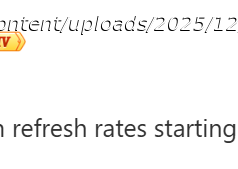Facebook is giving its “Safety Check” feature a permanent home in its app and on the desktop, the company announced today. The feature, which lets you check..
Facebook is giving its “Safety Check” feature a permanent home in its app and on the desktop, the company announced today. The feature, which lets you check to see whether friends and family are safe following a crisis, will now have its own dedicated button in the app’s navigation menu and will be available via the Facebook website on the desktop.
The change comes following new terrorist attacks, one in Barcelona, where a vehicle was driven into a crowd; as well as the attack in Charlottesville, here in the U. S.
According to Facebook, the dedicated button is gradually rolling out to users starting today, and will complete over the upcoming weeks. That means you may not see the option right away, but likely will soon.
Safety Check has been given increased attention this year, with a series of updates that have included additions like a “Community Help” option that allows locals to offer assistance and supplies to affected people following a crisis or disaster. In June, Safety Check integrated fundraisers, as well. This arrived along with other upgrades like crisis descriptions to help people better understand the situation, and new sharing options that let people tell their own stories, rather than just marking themselves as “safe.”
When Safety Check is accessed by way of the new button, you’ ll be able to view a feed of disasters, updates from friends who marked themselves as safe, and offers of help. An “around the world” section will display where Safety Check has been recently enabled, too.
Safety Check has faced some criticism due to its overreach, at times. That is, people are often alerted to tragedies that are taking place miles away, or even further, from their current location. This in turn creates additional stress from a feature whose original purpose was to reduce it. Giving the feature a permanent spot may not improve matters on that front, as it will now always be accessible.






